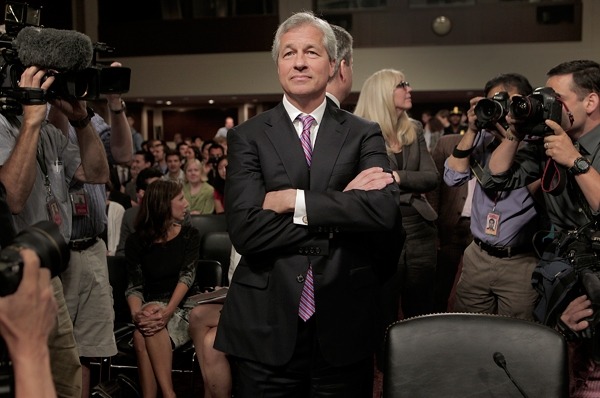Narcissists don’t happen to be particularly nice people. They preen. They grab. And they never ever really feel our pain.
Extremely self-centered people, some fascinating new business school research shows, also don’t make for particularly effective corporate CEOs.
This new research—conducted by business school analysts at the University of Southern California and the University of Arizona—examines the impact of CEO narcissism on corporate tax policies. That impact turns out to be fairly robust. The corporations that America’s most narcissistic CEOs run seem to be prone to engaging in highly risky corporate tax-avoidance maneuvers.
How did the experts behind this new study, Kari Joseph Olsen and James Stekelberg, identify the narcissists in America’s top corporate ranks? They used a variety of yardsticks, everything from the pay gap between CEOs and their fellow executives to the prominence of CEO photos in corporate annual reports.
Do narcissists just naturally gravitate to America’s corporate pay summit or do the incredibly cushy rewards at that summit turn otherwise normal people into narcissists?
The two researchers had no problem finding a statistically significant subset of chief executive narcissists within the Fortune 500. And that hefty number of narcissistic CEOs begs a rather obvious question: Do narcissists just naturally gravitate to America’s corporate pay summit or do the incredibly cushy rewards at that summit turn otherwise normal people into narcissists?
Social scientists used to leave that sort of question to philosophers. But recent years have brought a surge of research into the impact of affluence on behavior. Experiments and field observations have shown that life in the rarefied air of America’s upper crust may be breeding, as University of California at Berkeley psychologist Paul Piff puts it, “increased entitlement and narcissism.”
None of this, Forbes commentator Elizabeth MacBride recently suggested, would likely surprise Harold MacInnes, the former CEO at AMP, the Pennsylvania-based company that rated a quarter-century ago as the world’s largest supplier of electronic connectors and America’s 150th-largest corporation.
MacBride still vividly remembers interviewing MacInnes before his 1992 retirement, after the MIT-trained engineer had pledged not to take, as CEO, any more than 14 times the wage of AMP’s lowest-paid worker. MacBride asked MacInnes why he made that pledge. Excessive compensation, he told her, can ruin a CEO’s judgment.
Indeed, MacBride soon learned, MacInnes considered excessive compensation no less dangerous to a chief executive than an excessive intake of alcohol.
In effect, MacInnes saw the narcissism coming — and tried to do his part to derail the onrushing excessive pay engine. Now we need to do ours. Quickly. America’s top CEOs are currently pulling down well over 300 times what their workers average.
Where to start? In London, Britain’s most respected watchdog over executive compensation — the High Pay Centre—has just released a new paper that spells out eight specific moves that could help modern industrial societies “deliver fairer, more proportionate pay for those at the top.”
Most of the moves on this valuable list from the UK High Pay Centre haven’t yet gained much traction in the United States. The High Pay Centre report, for instance, calls for worker representation on all corporate boards of directors and executive compensation committees.
Taking such a step, the new How to Make Top Pay Fairer report notes, would “bring a degree of ‘real world’ perspective to deliberations on executive pay.”
What’s the boldest proposal on the High Pay Centre list? A cap on executive pay set at a fixed multiple of a corporation’s lowest-paid employee.
“We need to build an economy where people are paid fair and sensible amounts of money for the work that they do and the incomes of the super-rich aren’t racing away from everybody else,” explains High Pay Centre director Deborah Hargreaves, the former business editor at the UK’s Guardian daily newspaper.
“A maximum pay ratio would recognize the important principle that all workers should share in a company’s success,” adds Hargreaves. “The idea must now be properly debated.”
Sam Pizzigati is an Institute for Policy Studies associate fellow and edits the inequality weekly Too Much. His latest book is The Rich Don’t Always Win: The Forgotten Triumph over Plutocracy that Created the American Middle Class.






0 Comments